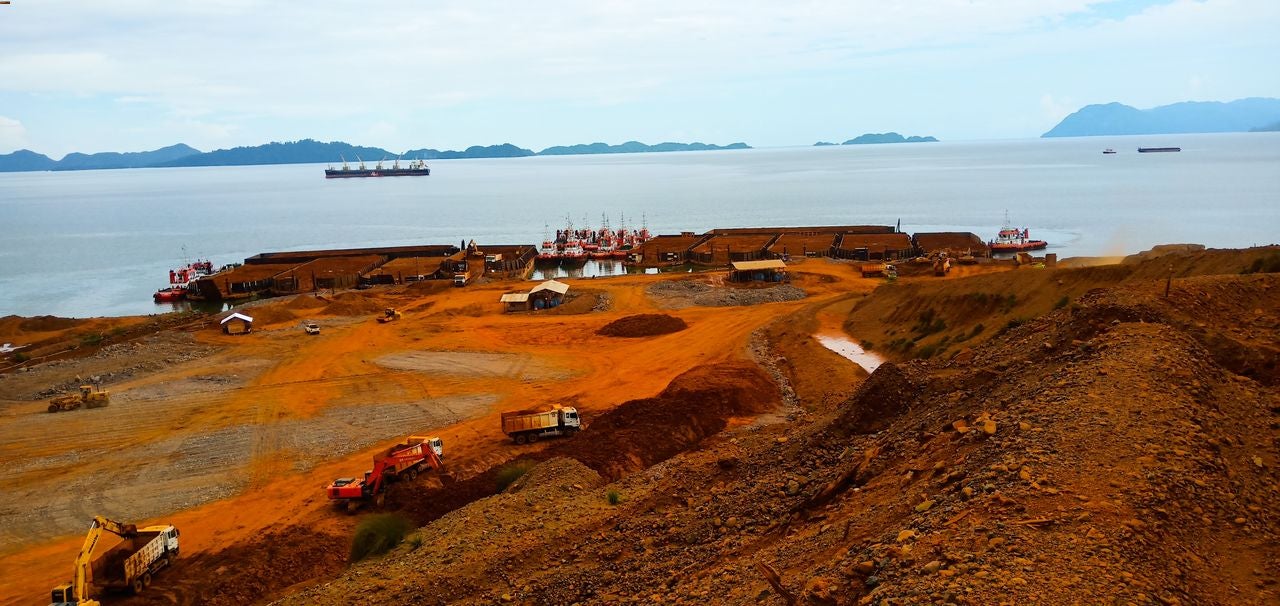Indonesian IPOs hit the ground running this first quarter of 2023, with Harita Nickel and Merdeka Battery Materials attracting investors’ appetite. However, despite being on track to become one of the biggest players in the electric vehicles market over the next decade, Indonesia still struggles to fulfil ESG standards.
A long story short
A central component of lithium-ion batteries, nickel is one of the critical minerals that the EV and battery industries are racing for. Indonesia accounts for roughly 21 million tons (mt) of the ore, or 22% of the world’s known nickel reserves, followed by Australia and Brazil. Nickel is arguably among the major drivers of Indonesia’s economic development, being one of the biggest producers—with 1.13mt in 2022—and it is set to increase its production by 13% in 2025, according to GlobalData mining experts’ forecasts.
However, the Indonesian Government is becoming increasingly keen on adding value to the resource rather than just selling it as a raw material, focusing on the downstream side. This led the world’s leader in nickel reserves to stop exporting raw metal in 2019, aiming instead to become a power in nickel extraction and refining.
This ban caused serious supply chain disruptions, especially during the Covid-19 pandemic, considering that China is the biggest nickel importer accounting for more than 85% of imports from now until 2027, estimates GlobalData. Electric vehicles are currently essential for most nations’ decarbonisation plans. Nickel is a core mineral to produce EV batteries that will make news headlines for years to come.
Tapping Indonesian nickel reserves has never been so successful
Nickel is a keystone in Indonesia’s plans to become a green-energy giant and, from an EV market perspective, an important cog in its global supply chain.
To put this into perspective, Indonesian IPOs hit the ground running in the first quarter of 2023, showing investors’ interest in metal-processing and battery-making companies. Successful nickel-related listings happened in April, starting with Harita Nickel, a nickel mining and smelting company producing 60,000tpa of contained nickel, valued at more than $5.5bn and raising $672m. Later in the month, another Indonesian nickel firm, Merdeka Battery Materials, made a booming market debut, raising almost $592m.

US Tariffs are shifting - will you react or anticipate?
Don’t let policy changes catch you off guard. Stay proactive with real-time data and expert analysis.
By GlobalDataReports
Nickel Mining Market Analysis including Reserves, Production, Operating, Developing and Exploration Assets, Demand Drivers, Key Players and Forecasts, 2021-2026
Investors are jumping with both feet on the nickel sector stocks, showing optimism toward the development of a nickel-based EV battery business. Their enthusiasm for nickel produced in emerging markets like Indonesia is likely driven by sourcing EV battery raw materials and securing a slice of the cake to get these EV companies’ bases covered. Also, compensating the Chinese companies’ dominance over Indonesian nickel resources is paramount for the Indonesian Government, which is encouraging Western companies to partner together with them. For example, Volkswagen will partner with Ford, Vale, and Huayou Cobalt in a series of joint ventures to take advantage of the country’s nickel reserves and create an EV battery ecosystem in Indonesia.
Investors’ green concerns
Nickel is an enabler of many sustainable technologies. Moreover, thanks to highly efficient recycling, 68% of all nickel available from consumer products is recycled, beginning a new life cycle. However, the environmental impact of nickel mining is still significant. Extraction is energy-intensive, Indonesia is still high-reliant on coal, and there are concerns related to environmental degradation. Therefore, despite being a key enabler of the energy transition, Indonesia still needs to increase its efforts to reduce its nickel-mining carbon footprint.
Although the country recently made some ESG pledges, this is creating concerns for many investors. On one hand, EV companies may find it tough to abandon the Indonesian nickel out of their supply chains, however, maintaining their ESG standards while buying it might reveal an even bigger challenge. Nevertheless, it is likely that Indonesia will play a major role in the battery market in the next decade. Only time will tell how able the Indonesian government will be to swim in these murky waters.






